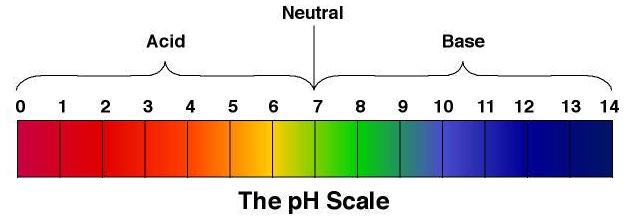Martin Schmidt, the manager of German soccer team Wolfsburg, recently admitted that he forces all his players to brush their teeth after practice.
Why? These are grown men who make a lot of money, why must they brush their teeth?
According to Schmidt, exercise causes acidity and this acidity goes into the bloodstream, and it can affect the players’ energy levels.
How true is this?
Schmidt must be talking about alkalinity and acidity, where there is a nutritional school of thought that believes that diets ought to be heavily alkaline — which, like acidity, refers to the pH balance of what we’re eating — to stop the body from overworking.
Our bodies regulate the pH balance of the blood moving through our circulatory system. Their argument: why make the body work harder than it needs to?
The alkalinity theory is mostly bunk, it just happens that the diet is healthy for other reasons too (it emphasizes vegetables, fruits, nuts, and lots of water).
Regardless, there might be another reason to brush your teeth after exercising.
And it has to do with alkalinity, but not with energy regeneration.
In 2013, twelve researchers studied 302 athletes who participated in the London 2012 Olympics. The results are incredible:
- 55% of the athletes suffered from tooth decay;
- 45% suffered from dental erosion;
- 76% — over three-in-four — have gum disease;
- 26% — over one-in-four — said that their oral health “bothers” them.
Clearly, there is a relationship between athletes, exercise, and dental health.
Let’s explore that.
Exercise and Your Teeth
A 2015 study on endurance training and tooth decay found that there is a “significant correlation” between the prevalence of tooth decay and the total amount of training performed each week.
They also found a decrease in saliva production and an increase in saliva pH.
What does this mean?
Saliva helps dilute concentrations of sugars on our teeth, neutralize plaque pH, and degrade bacterial build-up, among other things.
When saliva flow decreases, we lose these benefits.
A 2012 paper by Rabelo, Reis, and Thiemi, “Saliva and Dental Erosion,” found that saliva helps to dilute acidity in the mouth.
This acidity is what causes dental erosion, in the same way the acidity of soda does.
If exercise decreases saliva production, then it makes sense that long, intense workouts can have unintended consequences as far as our dental health is concerned.
What’s interesting is that, while acidity is what causes dental erosion, it’s not the acidity of the saliva that’s a problem.
In fact, in the above-cited 2015 study, they said that the pH of saliva increases.
A neutral pH balance is 7. If you go higher, you enter base territory (base and alkaline are not necessarily the same thing, but for the sake of simplicity let’s avoid that detour). If you go lower, it becomes acidic.
If the pH of saliva is increasing, it means it’s becoming more alkaline.
The problem with alkaline saliva is that it promotes an environment for tartar and plaque, which is like infrastructure needed for bacterial cultures to slowly degrade our teeth.
There you have it. Exercise is bad for our dental health. Science says so!
We can all stop exercising now, right?
Well, no.
The Athlete’s Guide to Better Oral Health
Although Wolfsburg’s Schmidt may not have the exact details right, he may be on to something as far as forcing his players to brush their teeth after practice goes.
Obviously, we can’t stop exercising. There are too many other benefits.
- Reduced risk of cardiovascular disease
- Reduced risk of diabetes
- Reduced risk of (some) cancers
- Stronger bones and muscles
- Stronger mental health
- Longer lifespan
These are just some of the benefits.
The best way to combat the dental erosion and tooth decay associated with exercise is through good oral hygiene habits.
Brush your teeth, floss, drink a lot of water, and see your dentist at least twice a year.
That last point is not an attempt to get more business.
It’s a genuine recommendation.
Even people with the best dental genetics and the best hygienic habits develop plaque, tartar, tooth decay, and gum disease. They come to the dentist because brushing your teeth isn’t perfect; perfection doesn’t exist. Regularly visiting the dentist is just another layer of defense.
Final Thoughts
What about sports drinks?
We hear all the time about how sports drinks increase the likelihood of tooth decay and dental erosion.
The evidence here is mixed.
According to Dr. Cornelia Frese, who’s quoted in a 2014 New York Times article, “We had thought sports drinks and nutrition might have the most detrimental influence on dental decay,” she said, “but we saw no direct link” between them.”
A 2005 paper by von Fraunhofer and Rogers, however, found that it was energy/sports drinks that “showed the most aggressive dissolution effect on dental enamel.” Milosevic, in a 1997 article, found similar, but more muted results.
The fact of the matter is that any way you look at it, you can’t dispense of exercise and you don’t necessarily need to dispense of sports drinks, the essential point is always that you need to take care of your oral hygiene. And you need to know how what you do affects other parts of your body so that, if you are intensively working out, you’re also brushing your teeth more often.




